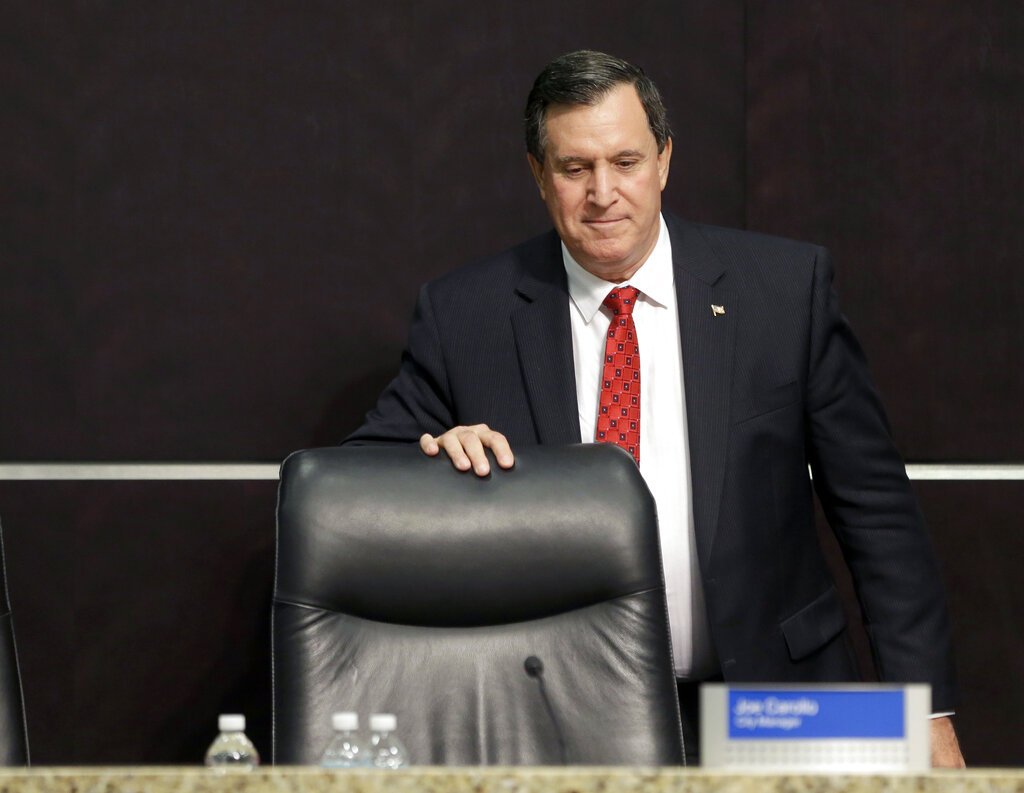Former Miami City Manager Emilio Gonzalez testified that the city deliberately targeted certain businesses in Little Havana through unlawful policies.
In a recently unsealed interview from 2021, Gonzalez said it was “very evident” to him that William Fuller and Martin Pinilla III, who own the businesses that brought the lawsuits, were being targeted by City Commissioner Joe Carollo, according to court documents filed on Nov. 16 and released this week.

“He made no secret that the fact that whatever it is they were doing was wrong,” Gonzalez said. “He one time, early on when I started as city manager, took me on a midnight tour … of Eighth Street, pointing out businesses which he thought had no business on Eighth Street, and it just sort of escalated and escalated.”
Gonzalez interviewed with Jeffery Gutchess, the lawyer for plaintiffs Fuller and Pinilla. Corporate entities plaintiffs Mad Room, Little Havana Arts Building, La Gran Fiesta, and Altos Mexicanos, owned by Fuller, Pinilla, and others, filed a lawsuit against the city of Miami in September 2021 for destroying their “fundamental and constitutional rights to their real property and in their businesses.” It cost the businesses $27.91 million, the owners claim.
‘ART OF THE STEAL’: NEW YORK AG LETITIA JAMES UNVEILS FRAUD LAWSUIT AGAINST TRUMP AND CHILDREN
The incidents began in January 2018, with the first hearing that November, according to court documents. Fuller and Pinilla filed a lawsuit that year accusing the city and Carollo of targeting.
Gonzalez, who served as city manager from January 2018 to January 2020, sat down for an interview with Gutchess in February 2021 and again in June 2022.
When asked whether Gonzalez thought Fuller and Pinilla’s businesses were “subjected to inspections and reviews that were grossly disproportionate to everybody else in the City,” he said, “Absolutely.”
“I would call that targeting,” he said, revising Gutchess’s label of “selective enforcement.”
Gonzalez said Carollo’s relationship with the city of Miami’s administration had “deteriorated.”
“It was never good. It was because he thought we were stonewalling his efforts to put Mr. Fuller out of business,” Gonzalez testified. “Deputy Manager Napoli and myself were adamant, saying, ‘We are not in the business of closing down businesses.'”
He added that City Attorney Victoria Mendez also had a hand in closing the businesses because she provided legal counsel to Carollo.
“So, whatever he did, she would provide legal justification for doing that,” Gonzalez said.
DC ATTORNEY GENERAL SUES WASHINGTON COMMANDERS FOR WITHHOLDING TICKETHOLDERS’ DEPOSITS: REPORT
Gonzalez recalled instances in which Mendez gave him and his team a list of properties to research that were clearly selective toward the plaintiffs.
“We went back to her and said, ‘These are all Fuller’s properties,’ and then she came back the next day or a couple days later with more properties and said, ‘Here. I threw in some non-Fuller properties so it doesn’t look like we’re piling on,'” Gonzalez said.
He said he had received a call from Mendez around the time of the first hearing in November 2018, during which she told him that Fuller’s attorneys planned to call him as a witness.
Mendez used the Spanish phrase “Pasar la mano” to emphasize that Gonzalez should “go to great lengths to make them happy,” he testified.
“I said, ‘There’s nothing to make happy about. If I am called to testify, I’ll testify. I’ll give the truth,'” Gonzalez said. “And then she reiterated that [Carollo] was visibly upset that I would be testifying and that it was in my best interest to ‘pasar la mano.'”
Lawyers for the city of Miami said the plaintiffs’ attorneys violated Florida Rules of Professional Conduct and filed a motion to make Gonzalez’s testimony and other interviews conducted “confidential” and attorneys’ eyes only. They argued Gonzalez’s testimony “binds” the city as an organization and therefore should be prohibited.
However, the court overruled the city’s motion, calling the city’s arguments “unpersuasive.” The court stated that Florida law does not prohibit Gonzalez from speaking about his former employment, calling the city’s arguments “unpersuasive.”
CLICK HERE TO READ MORE FROM THE WASHINGTON EXAMINER
As Gonzalez was not represented by the city attorney, Gutchess also did not need the city’s permission to interview him, the court determined.
“It appears Gonzalez’s interests were not aligned with the City’s interests,” the court document reads. “Gonzalez provided testimony suggesting that City Officials implemented policies aimed at targeting the Plaintiffs’ businesses and properties. This position directly conflicts with the City’s and, thus, the City Attorney was precluded from representing Gonzalez and controlling access to him.”
The next trial date for the case has not been reported.

